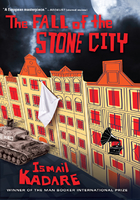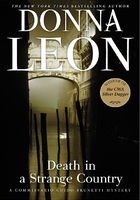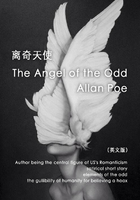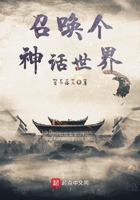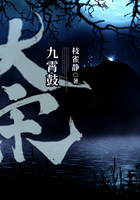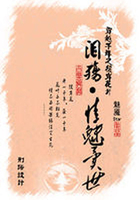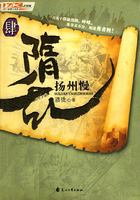The chance use of the word 'Tramp' in my last paper, brought that numerous fraternity so vividly before my mind's eye, that I had no sooner laid down my pen than a compulsion was upon me to take it up again, and make notes of the Tramps whom I perceived on all the summer roads in all directions.
Whenever a tramp sits down to rest by the wayside, he sits with his legs in a dry ditch; and whenever he goes to sleep (which is very often indeed), he goes to sleep on his back. Yonder, by the high road, glaring white in the bright sunshine, lies, on the dusty bit of turf under the bramble-bush that fences the coppice from the highway, the tramp of the order savage, fast asleep. He lies on the broad of his back, with his face turned up to the sky, and one of his ragged arms loosely thrown across his face. His bundle (what can be the contents of that mysterious bundle, to make it worth his while to carry it about?) is thrown down beside him, and the waking woman with him sits with her legs in the ditch, and her back to the road. She wears her bonnet rakishly perched on the front of her head, to shade her face from the sun in walking, and she ties her skirts round her in conventionally tight tramp-fashion with a sort of apron. You can seldom catch sight of her, resting thus, without seeing her in a despondently defiant manner doing something to her hair or her bonnet, and glancing at you between her fingers. She does not often go to sleep herself in the daytime, but will sit for any length of time beside the man. And his slumberous propensities would not seem to be referable to the fatigue of carrying the bundle, for she carries it much oftener and further than he. When they are afoot, you will mostly find him slouching on ahead, in a gruff temper, while she lags heavily behind with the burden. He is given to personally correcting her, too-which phase of his character develops itself oftenest, on benches outside alehouse doors-and she appears to become strongly attached to him for these reasons; it may usually be noticed that when the poor creature has a bruised face, she is the most affectionate. He has no occupation whatever, this order of tramp, and has no object whatever in going anywhere. He will sometimes call himself a brickmaker, or a sawyer, but only when he takes an imaginary flight. He generally represents himself, in a vague way, as looking out for a job of work; but he never did work, he never does, and he never will. It is a favourite fiction with him, however (as if he were the most industrious character on earth), that you never work; and as he goes past your garden and sees you looking at your flowers, you will overhear him growl with a strong sense of contrast, 'You are a lucky hidle devil, you are!'
The slinking tramp is of the same hopeless order, and has the same injured conviction on him that you were born to whatever you possess, and never did anything to get it: but he is of a less audacious disposition. He will stop before your gate, and say to his female companion with an air of constitutional humility and propitiation-to edify any one who may be within hearing behind a blind or a bush-'This is a sweet spot, ain't it? A lovelly spot! And I wonder if they'd give two poor footsore travellers like me and you, a drop of fresh water out of such a pretty gen-teel crib? We'd take it wery koind on 'em, wouldn't us? Wery koind, upon my word, us would?' He has a quick sense of a dog in the vicinity, and will extend his modestly-injured propitiation to the dog chained up in your yard; remarking, as he slinks at the yard gate, 'Ah! You are a foine breed o' dog, too, and you ain't kep for nothink! I'd take it wery koind o' your master if he'd elp a traveller and his woife as envies no gentlefolk their good fortun, wi' a bit o' your broken wittles. He'd never know the want of it, nor more would you. Don't bark like that, at poor persons as never done you no arm; the poor is down-trodden and broke enough without that; O DON'T!' He generally heaves a prodigious sigh in moving away, and always looks up the lane and down the lane, and up the road and down the road, before going on.
Both of these orders of tramp are of a very robust habit; let the hard-working labourer at whose cottage-door they prowl and beg, have the ague never so badly, these tramps are sure to be in good health.
There is another kind of tramp, whom you encounter this bright summer day-say, on a road with the sea-breeze making its dust lively, and sails of ships in the blue distance beyond the slope of Down. As you walk enjoyingly on, you descry in the perspective at the bottom of a steep hill up which your way lies, a figure that appears to be sitting airily on a gate, whistling in a cheerful and disengaged manner. As you approach nearer to it, you observe the figure to slide down from the gate, to desist from whistling, to uncock its hat, to become tender of foot, to depress its head and elevate its shoulders, and to present all the characteristics of profound despondency. Arriving at the bottom of the hill and coming close to the figure, you observe it to be the figure of a shabby young man. He is moving painfully forward, in the direction in which you are going, and his mind is so preoccupied with his misfortunes that he is not aware of your approach until you are close upon him at the hill-foot. When he is aware of you, you discover him to be a remarkably well-behaved young man, and a remarkably well-spoken young man. You know him to be well-behaved, by his respectful manner of touching his hat: you know him to be well-spoken, by his smooth manner of expressing himself. He says in a flowing confidential voice, and without punctuation, 'I ask your pardon sir but if you would excuse the liberty of being so addressed upon the public Iway by one who is almost reduced to rags though it as not always been so and by no fault of his own but through ill elth in his family and many unmerited sufferings it would be a great obligation sir to know the time.' You give the well-spoken young man the time. The well-spoken young man, keeping well up with you, resumes: 'I am aware sir that it is a liberty to intrude a further question on a gentleman walking for his entertainment but might I make so bold as ask the favour of the way to Dover sir and about the distance?' You inform the well-spoken young man that the way to Dover is straight on, and the distance some eighteen miles. The well-spoken young man becomes greatly agitated. 'In the condition to which I am reduced,' says he, 'I could not ope to reach Dover before dark even if my shoes were in a state to take me there or my feet were in a state to old out over the flinty road and were not on the bare ground of which any gentleman has the means to satisfy himself by looking Sir may I take the liberty of speaking to you?' As the well-spoken young man keeps so well up with you that you can't prevent his taking the liberty of speaking to you, he goes on, with fluency: 'Sir it is not begging that is my intention for I was brought up by the best of mothers and begging is not my trade I should not know sir how to follow it as a trade if such were my shameful wishes for the best of mothers long taught otherwise and in the best of omes though now reduced to take the present liberty on the Iway Sir my business was the law-stationering and I was favourably known to the Solicitor-General the Attorney-General the majority of the judges and the ole of the legal profession but through ill elth in my family and the treachery of a friend for whom I became security and he no other than my own wife's brother the brother of my own wife I was cast forth with my tender partner and three young children not to beg for I will sooner die of deprivation but to make my way to the sea-port town of Dover where I have a relative i in respect not only that will assist me but that would trust me with untold gold Sir in appier times and hare this calamity fell upon me I made for my amusement when I little thought that I should ever need it excepting for my air this'-here the well-spoken young man put his hand into his breast-'this comb! Sir I implore you in the name of charity to purchase a tortoiseshell comb which is a genuine article at any price that your humanity may put upon it and may the blessings of a ouseless family awaiting with beating arts the return of a husband and a father from Dover upon the cold stone seats of London-bridge ever attend you Sir may I take the liberty of speaking to you I implore you to buy this comb!' By this time, being a reasonably good walker, you will have been too much for the well-spoken young man, who will stop short and express his disgust and his want of breath, in a long expectoration, as you leave him behind.
Towards the end of the same walk, on the same bright summer day, at the corner of the next little town or village, you may find another kind of tramp, embodied in the persons of a most exemplary couple whose only improvidence appears to have been, that they spent the last of their little All on soap. They are a man and woman, spotless to behold-John Anderson, with the frost on his short smock-frock instead of his 'pow,' attended by Mrs. Anderson. John is over-ostentatious of the frost upon his raiment, and wears a curious and, you would say, an almost unnecessary demonstration of girdle of white linen wound about his waist-a girdle, snowy as Mrs. Anderson's apron. This cleanliness was the expiring effort of the respectable couple, and nothing then remained to Mr. Anderson but to get chalked upon his spade in snow-white copy-book characters, HUNGRY! and to sit down here. Yes; one thing more remained to Mr. Anderson-his character; Monarchs could not deprive him of his hard-earned character. Accordingly, as you come up with this spectacle of virtue in distress, Mrs. Anderson rises, and with a decent curtsey presents for your consideration a certificate from a Doctor of Divinity, the reverend the Vicar of Upper Dodgington, who informs his Christian friends and all whom it may concern that the bearers, John Anderson and lawful wife, are persons to whom you cannot be too liberal. This benevolent pastor omitted no work of his hands to fit the good couple out, for with half an eye you can recognise his autograph on the spade.
Another class of tramp is a man, the most valuable part of whose stock-in-trade is a highly perplexed demeanour. He is got up like a countryman, and you will often come upon the poor fellow, while he is endeavouring to decipher the inscription on a milestone-quite a fruitless endeavour, for he cannot read. He asks your pardon, he truly does (he is very slow of speech, this tramp, and he looks in a bewildered way all round the prospect while he talks to you), but all of us shold do as we wold be done by, and he'll take it kind, if you'll put a power man in the right road fur to jine his eldest son as has broke his leg bad in the masoning, and is in this heere Orspit'l as is wrote down by Squire Pouncerby's own hand as wold not tell a lie fur no man. He then produces from under his dark frock (being always very slow and perplexed) a neat but worn old leathern purse, from which he takes a scrap of paper. On this scrap of paper is written, by Squire Pouncerby, of The Grove, 'Please to direct the Bearer, a poor but very worthy man, to the Sussex County Hospital, near Brighton'-a matter of some difficulty at the moment, seeing that the request comes suddenly upon you in the depths of Hertfordshire. The more you endeavour to indicate where Brighton is-when you have with the greatest difficulty remembered-the less the devoted father can be made to comprehend, and the more obtusely he stares at the prospect; whereby, being reduced to extremity, you recommend the faithful parent to begin by going to St. Albans, and present him with half-a-crown. It does him good, no doubt, but scarcely helps him forward, since you find him lying drunk that same evening in the wheelwright's sawpit under the shed where the felled trees are, opposite the sign of the Three Jolly Hedgers.
But, the most vicious, by far, of all the idle tramps, is the tramp who pretends to have been a gentleman. 'Educated,' he writes, from the village beer-shop in pale ink of a ferruginous complexion; 'educated at Trin. Coll. Cam.-nursed in the lap of affluence-once in my small way the pattron of the Muses,' &c. &c. &c.-surely a sympathetic mind will not withhold a trifle, to help him on to the market-town where he thinks of giving a Lecture to the fruges consumere nati, on things in general? This shameful creature lolling about hedge tap-rooms in his ragged clothes, now so far from being black that they look as if they never can have been black, is more selfish and insolent than even the savage tramp. He would sponge on the poorest boy for a farthing, and spurn him when he had got it; he would interpose (if he could get anything by it) between the baby and the mother's breast. So much lower than the company he keeps, for his maudlin assumption of being higher, this pitiless rascal blights the summer road as he maunders on between the luxuriant hedges; where (to my thinking) even the wild convolvulus and rose and sweet-briar, are the worse for his going by, and need time to recover from the taint of him in the air.
The young fellows who trudge along barefoot, five or six together, their boots slung over their shoulders, their shabby bundles under their arms, their sticks newly cut from some roadside wood, are not eminently prepossessing, but are much less objectionable. There is a tramp-fellowship among them. They pick one another up at resting stations, and go on in companies. They always go at a fast swing-though they generally limp too-and there is invariably one of the company who has much ado to keep up with the rest. They generally talk about horses, and any other means of locomotion than walking: or, one of the company relates some recent experiences of the road-which are always disputes and difficulties. As for example. 'So as I'm a standing at the pump in the market, blest if there don't come up a Beadle, and he ses, "Mustn't stand here," he ses. "Why not?" I ses. "No beggars allowed in this town," he ses. "Who's a beggar?" I ses. "You are," he ses. "Who ever see me beg? Did you?" I ses. "Then you're a tramp," he ses. "I'd rather be that than a Beadle," I ses.' (The company express great approval.) '"Would you?" he ses to me. "Yes, I would," I ses to him. "Well," he ses, "anyhow, get out of this town." "Why, blow your little town!" I ses, "who wants to be in it? Wot does your dirty little town mean by comin' and stickin' itself in the road to anywhere? Why don't you get a shovel and a barrer, and clear your town out o' people's way?"' (The company expressing the highest approval and laughing aloud, they all go down the hill.)
Then, there are the tramp handicraft men. Are they not all over England, in this Midsummer time? Where does the lark sing, the corn grow, the mill turn, the river run, and they are not among the lights and shadows, tinkering, chair-mending, umbrella-mending, clock-mending, knife-grinding? Surely, a pleasant thing, if we were in that condition of life, to grind our way through Kent, Sussex, and Surrey. For the worst six weeks or so, we should see the sparks we ground off, fiery bright against a background of green wheat and green leaves. A little later, and the ripe harvest would pale our sparks from red to yellow, until we got the dark newly-turned land for a background again, and they were red once more. By that time, we should have ground our way to the sea cliffs, and the whirr of our wheel would be lost in the breaking of the waves. Our next variety in sparks would be derived from contrast with the gorgeous medley of colours in the autumn woods, and, by the time we had ground our way round to the heathy lands between Reigate and Croydon, doing a prosperous stroke of business all along, we should show like a little firework in the light frosty air, and be the next best thing to the blacksmith's forge. Very agreeable, too, to go on a chair-mending tour. What judges we should be of rushes, and how knowingly (with a sheaf and a bottomless chair at our back) we should lounge on bridges, looking over at osier-beds! Among all the innumerable occupations that cannot possibly be transacted without the assistance of lookers-on, chair-mending may take a station in the first rank. When we sat down with our backs against the barn or the public-house, and began to mend, what a sense of popularity would grow upon us! When all the children came to look at us, and the tailor, and the general dealer, and the farmer who had been giving a small order at the little saddler's, and the groom from the great house, and the publican, and even the two skittle-players (and here note that, howsoever busy all the rest of village human-kind may be, there will always be two people with leisure to play at skittles, wherever village skittles are), what encouragement would be on us to plait and weave! No one looks at us while we plait and weave these words. Clock-mending again. Except for the slight inconvenience of carrying a clock under our arm, and the monotony of making the bell go, whenever we came to a human habitation, what a pleasant privilege to give a voice to the dumb cottage-clock, and set it talking to the cottage family again! Likewise we foresee great interest in going round by the park plantations, under the overhanging boughs (hares, rabbits, partridges, and pheasants, scudding like mad across and across the chequered ground before us), and so over the park ladder, and through the wood, until we came to the Keeper's lodge. Then, would, the Keeper be discoverable at his door, in a deep nest of leaves, smoking his pipe. Then, on our accosting him in the way of our trade, would he call to Mrs. Keeper, respecting 't'ould clock' in the kitchen. Then, would Mrs. Keeper ask us into the lodge, and on due examination we should offer to make a good job of it for eighteenpence; which offer, being accepted, would set us tinkling and clinking among the chubby, awe-struck little Keepers for an hour and more. So completely to the family's satisfaction would we achieve our work, that the Keeper would mention how that there was something wrong with the bell of the turret stable-clock up at the Hall, and that if we thought good of going up to the housekeeper on the chance of that job too, why he would take us. Then, should we go, among the branching oaks and the deep fern, by silent ways of mystery known to the Keeper, seeing the herd glancing here and there as we went along, until we came to the old Hall, solemn and grand. Under the Terrace Flower Garden, and round by the stables, would the Keeper take us in, and as we passed we should observe how spacious and stately the stables, and how fine the painting of the horses' names over their stalls, and how solitary all: the family being in London. Then, should we find ourselves presented to the housekeeper, sitting, in hushed state, at needlework, in a bay-window looking out upon a mighty grim red-brick quadrangle, guarded by stone lions disrespectfully throwing somersaults over the escutcheons of the noble family. Then, our services accepted and we insinuated with a candle into the stable-turret, we should find it to be a mere question of pendulum, but one that would hold us until dark. Then, should we fall to work, with a general impression of Ghosts being about, and of pictures indoors that of a certainty came out of their frames and 'walked,' if the family would only own it. Then, should we work and work, until the day gradually turned to dusk, and even until the dusk gradually turned to dark. Our task at length accomplished, we should be taken into an enormous servants' hall, and there regaled with beef and bread, and powerful ale. Then, paid freely, we should be at liberty to go, and should be told by a pointing helper to keep round over yinder by the blasted ash, and so straight through the woods, till we should see the town-lights right afore us. Then, feeling lonesome, should we desire upon the whole, that the ash had not been blasted, or that the helper had had the manners not to mention it. However, we should keep on, all right, till suddenly the stable bell would strike ten in the dolefullest way, quite chilling our blood, though we had so lately taught him how to acquit himself. Then, as we went on, should we recall old stories, and dimly consider what it would be most advisable to do, in the event of a tall figure, all in white, with saucer eyes, coming up and saying, 'I want you to come to a churchyard and mend a church clock. Follow me!' Then, should we make a burst to get clear of the trees, and should soon find ourselves in the open, with the town-lights bright ahead of us. So should we lie that night at the ancient sign of the Crispin and Crispanus, and rise early next morning to be betimes on tramp again.
Bricklayers often tramp, in twos and threes, lying by night at their 'lodges,' which are scattered all over the country. Bricklaying is another of the occupations that can by no means be transacted in rural parts, without the assistance of spectators-of as many as can be convened. In thinly-peopled spots, I have known brick-layers on tramp, coming up with bricklayers at work, to be so sensible of the indispensability of lookers-on, that they themselves have sat up in that capacity, and have been unable to subside into the acceptance of a proffered share in the job, for two or three days together. Sometimes, the 'navvy,' on tramp, with an extra pair of half-boots over his shoulder, a bag, a bottle, and a can, will take a similar part in a job of excavation, and will look at it without engaging in it, until all his money is gone. The current of my uncommercial pursuits caused me only last summer to want a little body of workmen for a certain spell of work in a pleasant part of the country; and I was at one time honoured with the attendance of as many as seven-and-twenty, who were looking at six.
Who can be familiar with any rustic highway in summer-time, without storing up knowledge of the many tramps who go from one oasis of town or village to another, to sell a stock in trade, apparently not worth a shilling when sold? Shrimps are a favourite commodity for this kind of speculation, and so are cakes of a soft and spongy character, coupled with Spanish nuts and brandy balls. The stock is carried on the head in a basket, and, between the head and the basket, are the trestles on which the stock is displayed at trading times. Fleet of foot, but a careworn class of tramp this, mostly; with a certain stiffness of neck, occasioned by much anxious balancing of baskets; and also with a long, Chinese sort of eye, which an overweighted forehead would seem to have squeezed into that form.
On the hot dusty roads near seaport towns and great rivers, behold the tramping Soldier. And if you should happen never to have asked yourself whether his uniform is suited to his work, perhaps the poor fellow's appearance as he comes distressfully towards you, with his absurdly tight jacket unbuttoned, his neck-gear in his hand, and his legs well chafed by his trousers of baize, may suggest the personal inquiry, how you think you would like it. Much better the tramping Sailor, although his cloth is somewhat too thick for land service. But, why the tramping merchant-mate should put on a black velvet waistcoat, for a chalky country in the dog-days, is one of the great secrets of nature that will never be discovered.
I have my eye upon a piece of Kentish road, bordered on either side by a wood, and having on one hand, between the road-dust and the trees, a skirting patch of grass. Wild flowers grow in abundance on this spot, and it lies high and airy, with a distant river stealing steadily away to the ocean, like a man's life. To gain the milestone here, which the moss, primroses, violets, blue-bells, and wild roses, would soon render illegible but for peering travellers pushing them aside with their sticks, you must come up a steep hill, come which way you may. So, all the tramps with carts or caravans-the Gipsy-tramp, the Show-tramp, the Cheap Jack-find it impossible to resist the temptations of the place, and all turn the horse loose when they come to it, and boil the pot. Bless the place, I love the ashes of the vagabond fires that have scorched its grass! What tramp children do I see here, attired in a handful of rags, making a gymnasium of the shafts of the cart, making a feather-bed of the flints and brambles, making a toy of the hobbled old horse who is not much more like a horse than any cheap toy would be! Here, do I encounter the cart of mats and brooms and baskets-with all thoughts of business given to the evening wind-with the stew made and being served out-with Cheap Jack and Dear Jill striking soft music out of the plates that are rattled like warlike cymbals when put up for auction at fairs and markets-their minds so influenced (no doubt) by the melody of the nightingales as they begin to sing in the woods behind them, that if I were to propose to deal, they would sell me anything at cost price. On this hallowed ground has it been my happy privilege (let me whisper it), to behold the White-haired Lady with the pink eyes, eating meat-pie with the Giant: while, by the hedge-side, on the box of blankets which I knew contained the snakes, were set forth the cups and saucers and the teapot. It was on an evening in August, that I chanced upon this ravishing spectacle, and I noticed that, whereas the Giant reclined half concealed beneath the overhanging boughs and seemed indifferent to Nature, the white hair of the gracious Lady streamed free in the breath of evening, and her pink eyes found pleasure in the landscape. I heard only a single sentence of her uttering, yet it bespoke a talent for modest repartee. The ill-mannered Giant-accursed be his evil race!-had interrupted the Lady in some remark, and, as I passed that enchanted corner of the wood, she gently reproved him, with the words, 'Now, Cobby;'-Cobby! so short a name!-'ain't one fool enough to talk at a time?'
Within appropriate distance of this magic ground, though not so near it as that the song trolled from tap or bench at door, can invade its woodland silence, is a little hostelry which no man possessed of a penny was ever known to pass in warm weather. Before its entrance, are certain pleasant, trimmed limes; likewise, a cool well, with so musical a bucket-handle that its fall upon the bucket rim will make a horse prick up his ears and neigh, upon the droughty road half a mile off. This is a house of great resort for haymaking tramps and harvest tramps, insomuch that as they sit within, drinking their mugs of beer, their relinquished scythes and reaping-hooks glare out of the open windows, as if the whole establishment were a family war-coach of Ancient Britons. Later in the season, the whole country-side, for miles and miles, will swarm with hopping tramps. They come in families, men, women, and children, every family provided with a bundle of bedding, an iron pot, a number of babies, and too often with some poor sick creature quite unfit for the rough life, for whom they suppose the smell of the fresh hop to be a sovereign remedy. Many of these hoppers are Irish, but many come from London. They crowd all the roads, and camp under all the hedges and on all the scraps of common-land, and live among and upon the hops until they are all picked, and the hop-gardens, so beautiful through the summer, look as if they had been laid waste by an invading army. Then, there is a vast exodus of tramps out of the country; and if you ride or drive round any turn of any road, at more than a foot pace, you will be bewildered to find that you have charged into the bosom of fifty families, and that there are splashing up all around you, in the utmost prodigality of confusion, bundles of bedding, babies, iron pots, and a good-humoured multitude of both sexes and all ages, equally divided between perspiration and intoxication.

